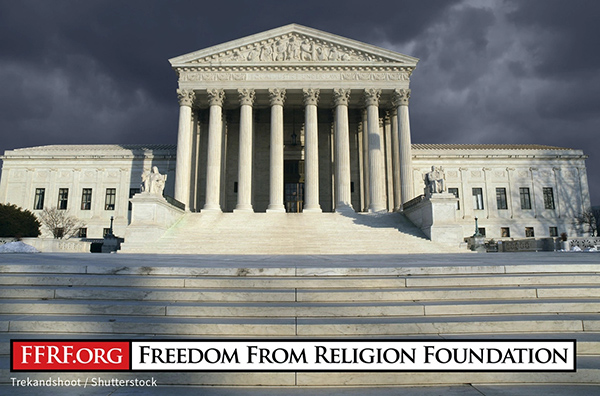
The U.S. Supreme Court’s decision late last week to review a private school grant program out of Maine signals, once again, that this activist court wants to advance religious interests at the cost of one of our country’s sacred founding principles: keeping religion and government separate.
At issue is the fate of Maine’s existing school funding program, which allows private schools to receive taxpayer money in rural communities lacking equivalent public schools (due to low student populations). Maine’s law properly limits funding to schools providing students with an education free of religious indoctrination.
In Carson v. Makin, the 1st U.S. Circuit Court of Appeals last fall correctly upheld Maine’s direct grant program — and its choice to exclude sectarian schools. Under the law, programs run by religious organizations are not automatically excluded from receiving taxpayer money. The disqualifying factor is a program’s intention to indoctrinate students.
It’s always a very bad sign, of course, when our side is winning and the high court chooses to review the case. The newly reconstituted Supreme Court now appears to be positioning itself to drastically expand its prior disastrous decisions related to taxpayer funds for religious institutions.
For example, in Trinity Lutheran v. Comer, the court in 2017 struck down a Missouri state restriction against taxpayer subsidies for playground resurfacing for religious preschool and day care facilities. Unlike Maine’s grant program, the playground resurfacing scheme excluded religious groups based on their religious character. Four of the six justices who joined the majority opinion in Trinity Lutheran stated that “this case involves express discrimination based on religious identity with respect to playground resurfacing. We do not address religious uses of funding.”
Unfortunately, the court’s new ultraconservative majority might well decide to do away with that distinction in this pending case, thereby obliterating taxpayers’ constitutional right not to fund religious indoctrination.
Where public money goes, public accountability must follow, as FFRF’s mantra has long noted. Accountability to taxpayers is a crucial requirement for any organization using public money, including religious schools. Religious schools want all of the benefits of Maine’s tuition program, but will fight to be excluded from whatever appropriate regulations the state couples with such funding. Their goal is nothing less than completely unrestricted use of government funding for purely religious ends.
FFRF, which had filed a friend-of-the-court brief in favor of the Maine law at the appeals level, intends to file a new amicus brief before the Supreme Court. Forcing taxpayers to subsidize religious indoctrination undermines taxpayers’ constitutional rights, as well as secular education.
“The United States was founded on a principle that it is tyrannical to force citizens to subsidize religions with which they disbelieve,” says FFRF Co-President Annie Laurie Gaylor. “Public schools exist to educate, not proselytize, and the same should be true of any publicly supported education.”
